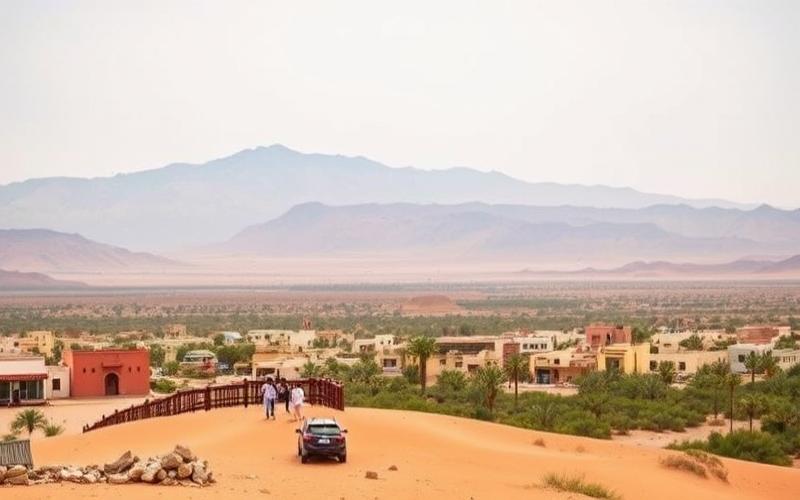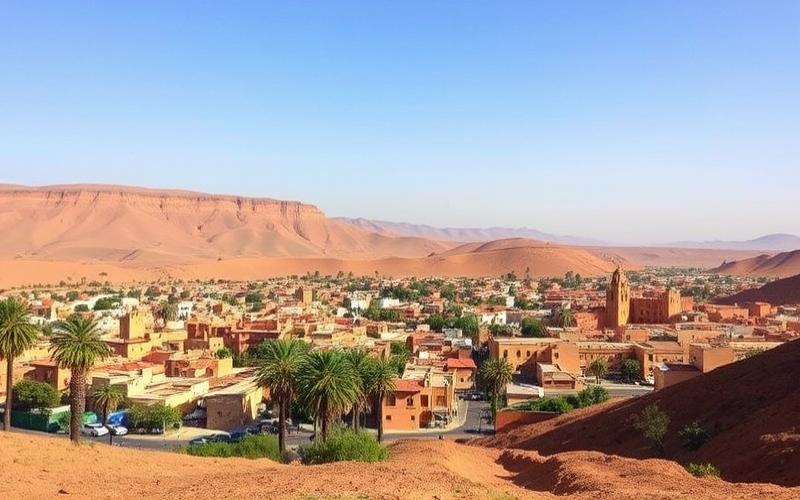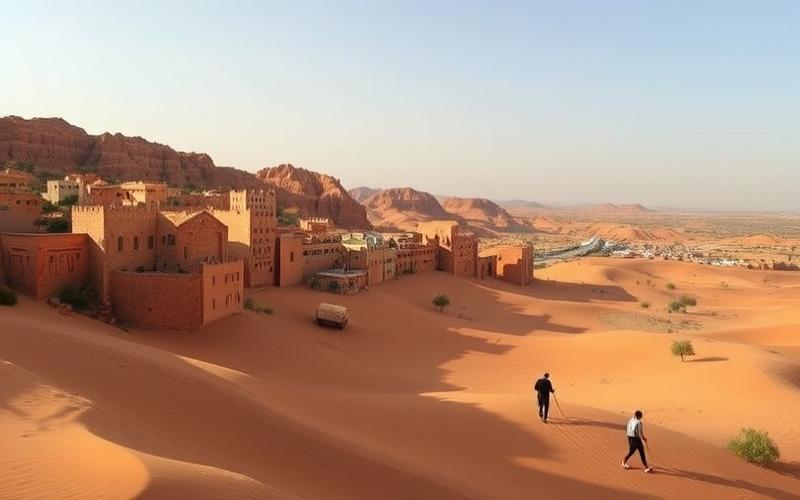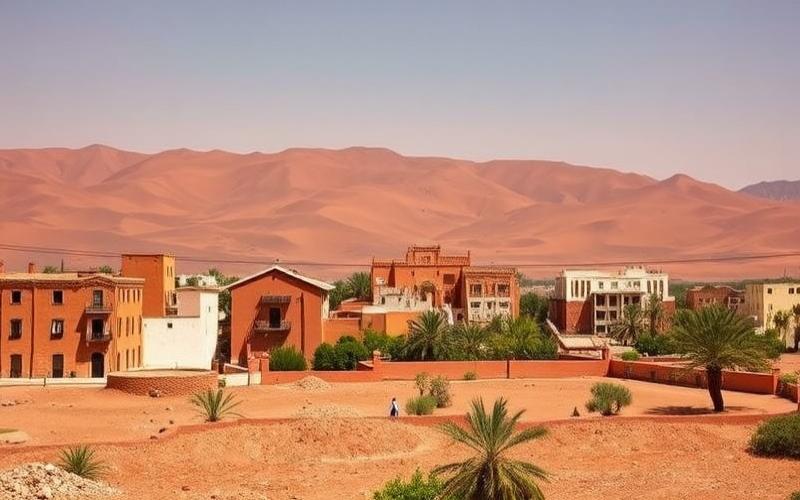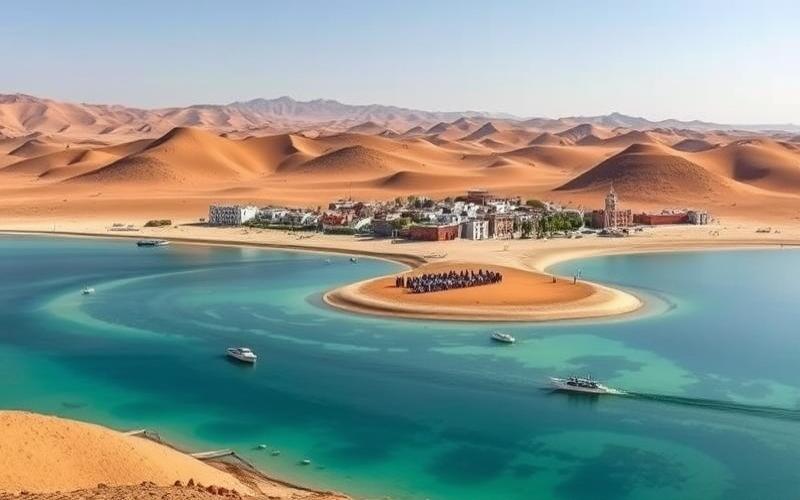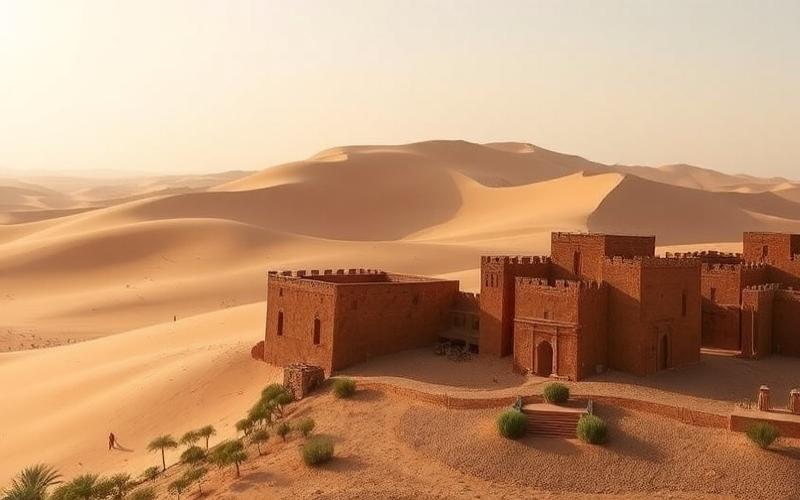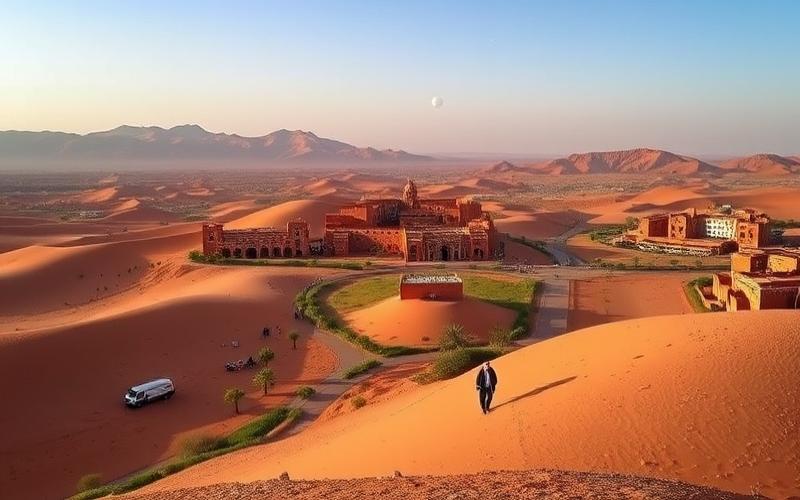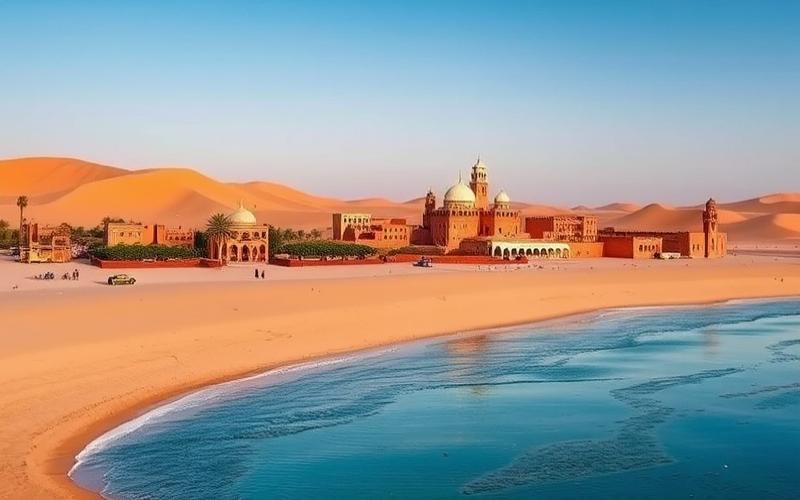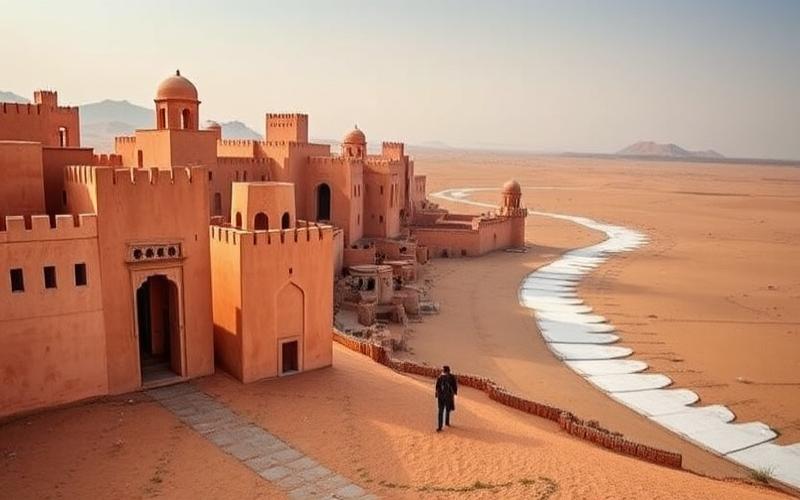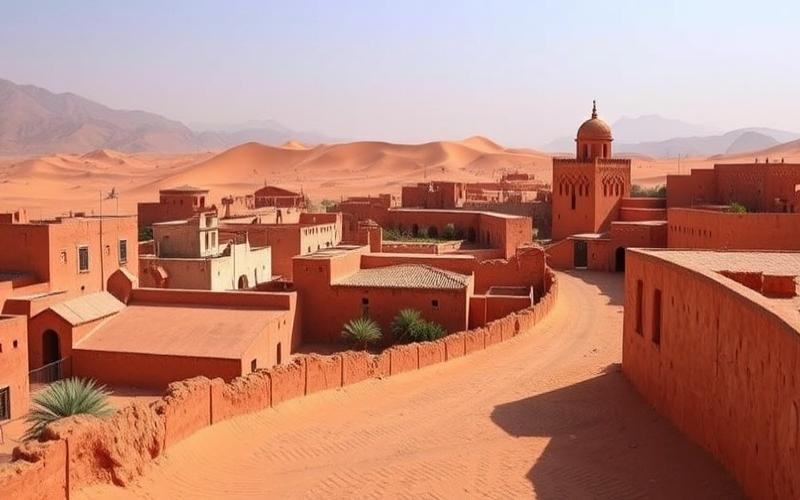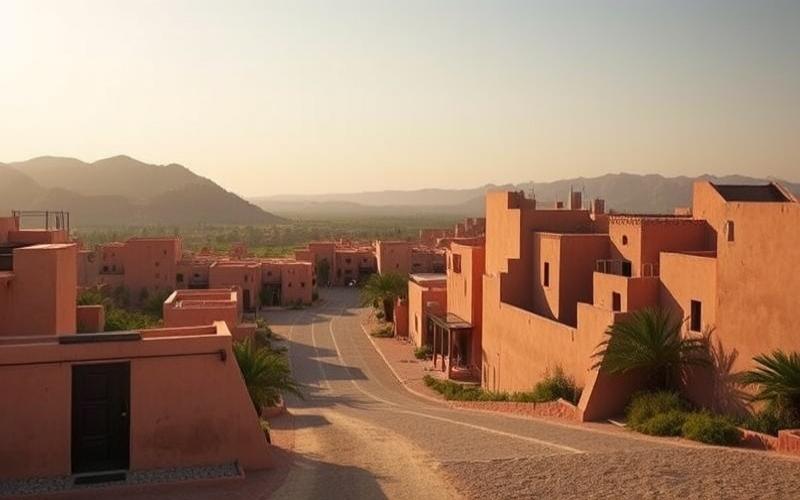
 Published on and written by Cyril Jarnias
Published on and written by Cyril Jarnias
Corporate culture plays a crucial role in the success and performance of organizations in Morocco. Understanding its subtleties and specificities is essential for any professional looking to thrive in the Moroccan business world. This article explores the different facets of corporate culture in Morocco, offering valuable insights to better integrate and prosper in this unique context.
The DNA of Moroccan Companies: Values and Norms Shaping the Professional Environment
Corporate culture in Morocco is deeply rooted in the country’s traditional values, while adapting to the demands of the modern business world. Moroccan companies place great importance on certain fundamental values that guide their daily operations.
Respect for Hierarchy and Elders
Respect for authority and experience is a central value in Moroccan culture, which naturally reflects in the business world. Employees tend to show great deference toward their superiors and older individuals. This attitude manifests through formal language, respectful behavior, and a tendency to avoid direct confrontation with authority figures.
Importance of Interpersonal Relationships
Human relationships are at the heart of Moroccan corporate culture. The concept of “wasta” (network of contacts and influence) plays an important role in business. Moroccan professionals invest significant time and energy in building and maintaining strong relationships with colleagues, clients, and partners. This relational approach influences decision-making processes and can sometimes take precedence over purely technical or financial considerations.
Balance Between Tradition and Modernity
Moroccan companies often seek to reconcile traditional values with the competitiveness requirements of the global market. This duality is reflected in the adoption of modern management practices while preserving certain aspects of local culture, such as respect for religious holidays or the importance placed on family.
Sense of Hospitality and Generosity
The culture of hospitality, deeply ingrained in Moroccan society, is also found in the business world. Business meetings are often accompanied by mint tea and pastries, and it’s not uncommon for professional discussions to extend over a meal. This hospitality helps create a warm atmosphere conducive to exchanges.
Good to Know:
To effectively integrate into a Moroccan company, it’s crucial to understand and respect these fundamental values. Taking time to build relationships, showing respect toward hierarchy, and demonstrating patience in decision-making processes are major assets for success in this context.
The Power of Words: Subtleties of Internal Communication Moroccan-Style
Communication within Moroccan companies presents unique characteristics that reflect both the country’s traditional culture and its growing openness to the world. Understanding these nuances is essential for effectively navigating the Moroccan professional environment.
Multilingualism and Code-Switching
Morocco is a multilingual country, and this linguistic diversity is reflected in business communication. Moroccan Arabic dialect (darija) is widely used in informal conversations, while standard Arabic, French, and increasingly English are preferred for formal and written communication. Code-switching, meaning the fluid transition from one language to another within the same conversation, is a common practice that demonstrates the country’s cultural richness.
Indirect Communication and Diplomacy
Moroccan culture values diplomacy and harmony in interpersonal relationships. This approach translates into often indirect communication, where negative messages or criticisms are expressed subtly to avoid offending sensibilities. Moroccan professionals tend to favor nuanced language and use elaborate polite formulas, even in situations of disagreement.
Importance of Non-Verbal Communication
In Moroccan corporate culture, non-verbal communication plays a crucial role. Gestures, facial expressions, and body language are often as important as spoken words. For example, direct eye contact can be perceived as a sign of respect and attention, but it must be moderated to avoid appearing intimidating, especially in interactions with hierarchical superiors.
Formality and Hierarchy in Communication
Communication within Moroccan companies is generally marked by strong respect for hierarchy. Employees address their superiors using formal titles and elaborate polite formulas. This formality also extends to written communication, where emails and reports often follow a very structured format with specific opening and closing formulas.
Informal Communication Networks
Alongside official communication channels, informal networks play an important role in information dissemination within Moroccan companies. Hallway conversations, coffee breaks, and lunches among colleagues are often key moments where crucial information circulates and professional relationships are built.
Good to Know:
To communicate effectively in a Moroccan company, it’s important to be attentive to language nuances, master the art of diplomacy, and understand the importance of informal networks. Adapting your communication style according to context and interlocutor is a valuable skill for success in this environment.
The Art of Moroccan Leadership: Between Tradition and Managerial Innovation
The management style in Morocco reflects a society in full transformation, where traditional practices coexist with modern approaches inspired by international standards. This duality creates a unique work environment, presenting both challenges and opportunities for managers and employees.
Hierarchical and Paternalistic Management
Historically, management style in Morocco has been strongly influenced by a hierarchical social structure. Many companies, particularly older ones or family businesses, still adopt a paternalistic management style. In this model, the leader is perceived as a benevolent authority figure, responsible not only for company performance but also for employee well-being. This approach can translate into centralized decision-making and an expectation of loyalty and respect from employees.
Evolution Toward Modern Management Practices
With Morocco’s increasing openness to the global economy and the arrival of multinational companies, a gradual evolution toward more participative and performance-oriented management styles is observed. Young managers, often trained abroad or in international business schools, introduce new practices such as management by objectives, performance evaluation based on results, and more open and transparent communication.
Importance of Interpersonal Relationships
Regardless of the management style adopted, interpersonal relationships remain at the heart of Moroccan corporate culture. Effective managers are those who know how to build and maintain strong relationships with their teams, peers, and superiors. This relational approach manifests through particular attention to personal aspects of employees’ lives and a tendency to favor informal conflict resolution.
Time Management and Flexibility
The perception and management of time in Moroccan companies can differ from Western standards. Although punctuality is increasingly valued, particularly in large companies and multinationals, there still exists a certain flexibility in managing schedules and deadlines. Managers often need to demonstrate patience and adaptability in the face of this more flexible approach to time.
Valuing Experience and Seniority
In many Moroccan companies, experience and seniority are highly valued and can take precedence over technical skills in promotion decisions or assignment of responsibilities. This trend is gradually evolving, particularly in the most dynamic sectors of the economy, but remains an important aspect of management culture to consider.
Good to Know:
To succeed as a manager in Morocco, it’s crucial to find a balance between respecting traditional values and introducing modern management practices. The ability to build strong relationships, communicate effectively at all organizational levels, and adapt to a constantly evolving environment is essential.
Toward a More Inclusive Morocco: Challenges and Opportunities of Workplace Diversity
Diversity and inclusion are increasingly important topics in the Moroccan entrepreneurial landscape. As the country strives to modernize its economy and attract foreign investment, Moroccan companies are becoming aware of the added value that a diverse and inclusive workforce can bring. However, challenges persist and progress remains to be made in several areas.
Gender Equality: A Major Issue
Morocco has made significant progress in gender equality in recent years, particularly through legislative reforms and growing awareness. However, women remain underrepresented in management positions and face obstacles in career progression. Many companies are implementing specific programs to promote female leadership and ensure equal opportunities in recruitment and promotion.
Integration of Young Graduates
With a young and increasingly educated population, integrating young graduates into the workforce is a major challenge for Moroccan companies. Initiatives aimed at facilitating the transition between education and employment, such as internship and mentorship programs, are gaining popularity. Companies that succeed in attracting and retaining young talent are often those that offer professional development opportunities and value innovation and creativity.
Cultural and Linguistic Diversity
Morocco, a cultural crossroads, benefits from rich cultural and linguistic diversity. The most successful companies are those that know how to leverage this diversity by creating inclusive work environments where different languages and cultures are valued. This approach is particularly important for companies operating internationally or seeking to attract foreign talent.
Inclusion of People with Disabilities
The inclusion of people with disabilities in the workforce remains a challenge in Morocco. Although laws exist to promote employment of people with disabilities, their effective implementation varies considerably from company to company. The most progressive organizations implement reasonable accommodation policies and awareness programs to foster the integration of people with disabilities.
Fighting Discrimination
The fight against all forms of discrimination (based on age, ethnic origin, religion, sexual orientation, etc.) is a growing challenge for Moroccan companies. More and more organizations are adopting diversity charters and implementing training to raise employee awareness about unconscious biases and promote an inclusive work environment.
Good to Know:
Companies that succeed in creating a truly inclusive environment often benefit from better reputation, greater innovation capacity, and better overall performance. For professionals working in the Moroccan context, being sensitive to diversity and inclusion issues and actively contributing to these initiatives can be a major asset for their career.
Motivating and Retaining: Winning Strategies for Engaging Moroccan Talent
In an increasingly competitive labor market, Moroccan companies are intensifying efforts to attract, motivate, and retain the best talent. Employee engagement strategies are evolving rapidly, reflecting both the cultural specificities of Morocco and global trends in human resource management.
Professional Development and Continuous Training
Moroccan companies increasingly recognize the importance of professional development as a key factor in employee engagement. Internal training programs, coaching, and international mobility opportunities are increasingly offered to enable employees to acquire new skills and advance within the organization. This approach responds to the strong aspiration of young Moroccan professionals to progress rapidly in their careers.
Competitive Compensation and Social Benefits
Although compensation is not the only motivating factor, it remains an important element in employee engagement strategy in Morocco. The most attractive companies offer competitive compensation packages, including not only an attractive base salary but also performance-based bonuses, company savings plans, and social benefits such as complementary health insurance or additional leave.
Work-Life Balance
The concept of work-life balance is gaining importance in Moroccan corporate culture. Progressive organizations are implementing flexible work time policies, partial telework, and extended parental leave. These initiatives are particularly appreciated by younger generations who place great importance on quality of life at work.
Recognition and Valuing Contributions
Moroccan culture places great importance on recognition and honor. Companies that succeed in engaging their employees implement formal and informal recognition programs to celebrate individual and collective achievements. These initiatives can take the form of award ceremonies, mentions in internal communications, or merit-based promotions.
Social and Environmental Responsibility
Moroccan employees, particularly younger generations, are increasingly sensitive to the social and environmental impact of their company. Organizations that engage in corporate social responsibility (CSR) initiatives and allow their employees to participate in volunteer or charitable actions often benefit from greater engagement from them.
Strong Corporate Culture and Shared Values
Companies that succeed in creating a strong corporate culture, based on clearly defined values shared by all, generally observe greater employee engagement. This culture manifests through company rituals, social events, and transparent internal communication that reinforces the sense of belonging.
Good to Know:
To successfully engage Moroccan talent long-term, companies must adopt a holistic approach that considers both professional aspirations, personal needs, and employee values. The most effective strategies are those that manage to align individual employee goals with the organization’s mission and values.
Corporate culture in Morocco is evolving rapidly, reflecting the rapid transformations the country is experiencing on economic and social levels. Successful organizations are those that manage to find a balance between respecting traditional values and adopting modern practices adapted to the expectations of new generations of professionals.
To integrate and succeed in this unique context, it is essential to:
– Understand and respect the fundamental values of Moroccan culture, while being open to modern management practices. – Develop intercultural communication skills, being attentive to language nuances and the importance of interpersonal relationships. – Be sensitive to diversity and inclusion issues, and actively contribute to creating a more inclusive work environment. – Adapt to a management style that may vary between traditional and modern, demonstrating flexibility and patience. – Commit to professional and personal development, while contributing to the organization’s mission and values.
By adopting this approach, professionals, whether Moroccan or foreign, will be better equipped to navigate the complexity of Moroccan corporate culture and fully contribute to their organization’s success.
Disclaimer: The information provided on this website is for informational purposes only and does not constitute financial, legal, or professional advice. We encourage you to consult qualified experts before making any investment, real estate, or expatriation decisions. Although we strive to maintain up-to-date and accurate information, we do not guarantee the completeness, accuracy, or timeliness of the proposed content. As investment and expatriation involve risks, we disclaim any liability for potential losses or damages arising from the use of this site. Your use of this site confirms your acceptance of these terms and your understanding of the associated risks.




